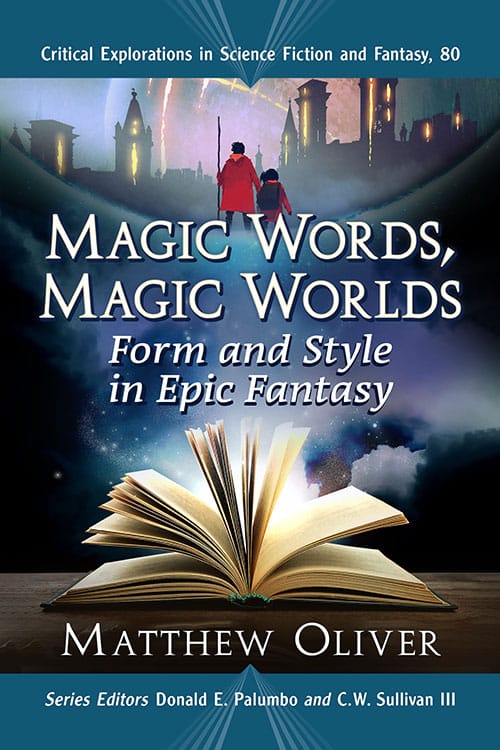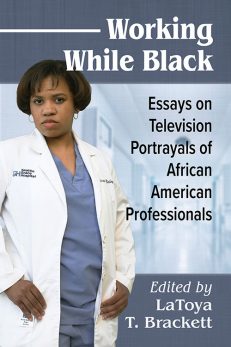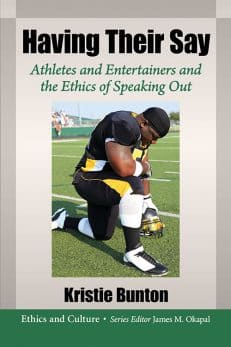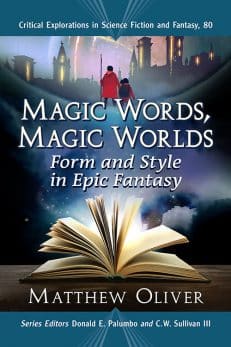Magic Words, Magic Worlds
Form and Style in Epic Fantasy
$39.95
In stock
About the Book
While all fiction uses words to construct models of the world for readers, nowhere is this more obvious than in fantasy fiction. Epic fantasy novels create elaborate secondary worlds entirely out of language, yet the writing style used to construct those worlds has rarely been studied in depth. This book builds the foundations for a study of style in epic fantasy. Close readings of selected novels by such writers as Steven Erikson, Ursula Le Guin, N. K. Jemisin and Brandon Sanderson offer insights into the significant implications of fantasy’s use of syntax, perspective, paratexts, frame narratives and more. Re-examining critical assumptions about the reading experience of epic fantasy, this work explores the genre’s reputation for flowery, archaic language and its ability to create a sense of wonder. Ultimately, it argues that epic fantasy shapes the way people think, examining how literary representation and style influence perception.
About the Author(s)
Bibliographic Details
Matthew Oliver
Series Editors Donald E. Palumbo and C.W. Sullivan III
Format: softcover (6 x 9)
Pages: 284
Bibliographic Info: notes, bibliography, index
Copyright Date: 2022
pISBN: 978-1-4766-8713-1
eISBN: 978-1-4766-4588-9
Imprint: McFarland
Series: Critical Explorations in Science Fiction and Fantasy
Table of Contents
Acknowledgments ix
Preface 1
Introduction: Building Worlds with Words in Epic Fantasy 5
Section I: Syntactic Complexity
1. “The Riotous Conflagration of Beauteous Language”: Flowery Style, Defamiliarization, and Empathic Imagination 35
2. “A Necessary Subtraction”: Simplicity, the Violent Emotion of Editing, and the Editing of Violence 60
Section II: Narrative Perspective
3. Third-Person Heroism: Authority, Omnipotent Narration, and the Distribution of Visibility 91
4. First-Person Epic Novels: Metafantasy and Fluid Perspective 123
Section III: Wonder
5. Spoiler Alert: Twists, the Sense of Wonder, and Narrative Transcendence 149
6. The Mundane Fantastic: Stylistic Magic and Genre Collisions 173
Section IV: Narrative Frames
7. Narrative Frames: Paratexts, Blurred Boundaries, and the Deconstruction of Essentialist Narrative 203
8. Frame Narratives: Historical Truth, Literal Metaphors, and Epic Irony 226
Chapter Notes 251
Works Cited 263
Index 271
Book Reviews & Awards
• “[A] strong, well-written, and thoroughly researched book, and it addresses a topic of scholarly concern (i.e., epic fantasy) that has been woefully neglected in the secondary literature.”—Dennis Wilson Wise, University of Arizona
• “Matthew Oliver’s Magic Words, Magic Worlds moves off the paved paths of fantasy scholarship based on rhetorics and definitions. Finally we have a rich and detailed consideration of style itself, which leads Oliver into perhaps the most overlooked yet engaging feature of the genre: affect. Scholars, just as much as lovers of the genre, will discover a ‘gramarye’ of fantasy here, with all the abundance that term affords.”—James Gifford, professor of English, Fairleigh Dickinson University





